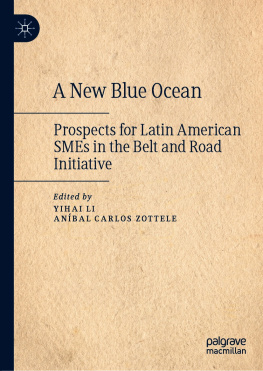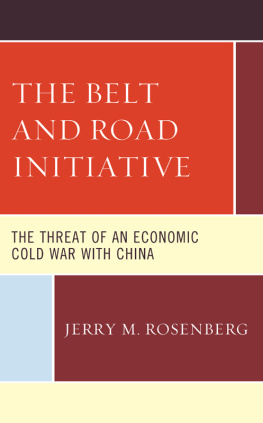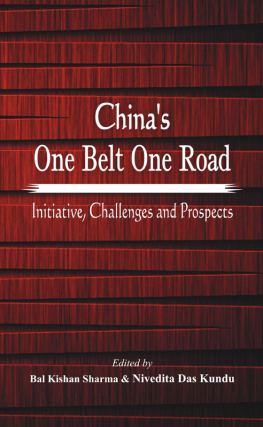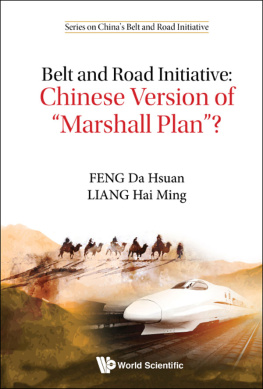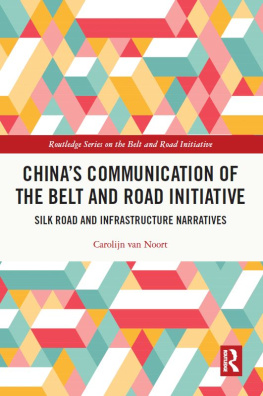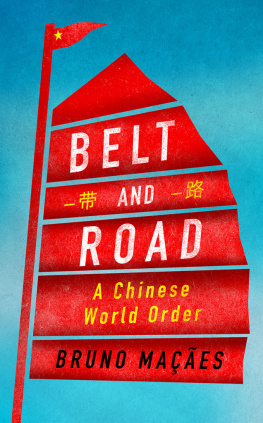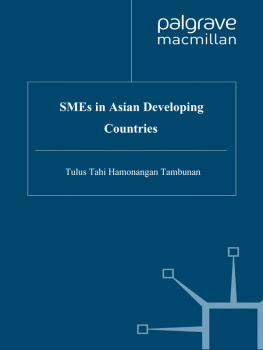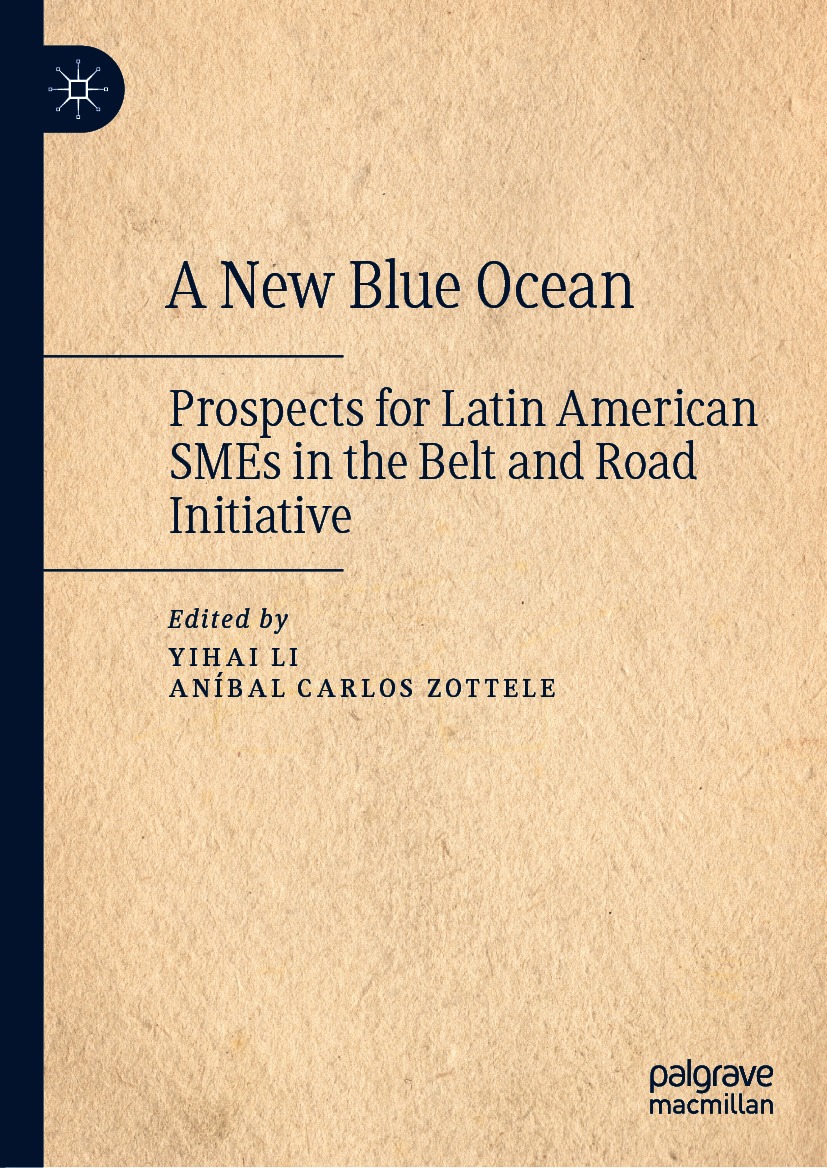Editors
Yihai Li
Shanghai Academy of Social Sciences Think Tank Foundation, Shanghai, China
Anbal Carlos Zottele
China-Veracruz Studies Center, University of Veracruz, Xalapa, Mexico
ISBN 978-981-15-7686-7 e-ISBN 978-981-15-7687-4
https://doi.org/10.1007/978-981-15-7687-4
The Editor(s) (if applicable) and The Author(s), under exclusive license to Springer Nature Singapore Pte Ltd. 2021
This work is subject to copyright. All rights are solely and exclusively licensed by the Publisher, whether the whole or part of the material is concerned, specifically the rights of translation, reprinting, reuse of illustrations, recitation, broadcasting, reproduction on microfilms or in any other physical way, and transmission or information storage and retrieval, electronic adaptation, computer software, or by similar or dissimilar methodology now known or hereafter developed.
The use of general descriptive names, registered names, trademarks, service marks, etc. in this publication does not imply, even in the absence of a specific statement, that such names are exempt from the relevant protective laws and regulations and therefore free for general use.
The publisher, the authors and the editors are safe to assume that the advice and information in this book are believed to be true and accurate at the date of publication. Neither the publisher nor the authors or the editors give a warranty, expressed or implied, with respect to the material contained herein or for any errors or omissions that may have been made. The publisher remains neutral with regard to jurisdictional claims in published maps and institutional affiliations.
This Palgrave Macmillan imprint is published by the registered company Springer Nature Singapore Pte Ltd.
The registered company address is: 152 Beach Road, #21-01/04 Gateway East, Singapore 189721, Singapore
Preface I
This book comes as a result of explorations in a new field of international economic cooperation. The economists and experts from both China and Latin America, through full academic interchange, reached consensus on the necessity of joint research on this topic: How can the achievements and challenges of Chinese and Latin American small and medium-sized enterprises (SMEs) be distilled for the benefit of China-Latin American win-win cooperation in the context of the new changes brought up by the Belt and Road Initiative (BRI) over the past six years. This book is entitled The New Blue Sea, as the SME-focused cooperation in the BRI framework between the two parties, whether in terms of actual practice or academic research, is virtually an unchartered new territory.
As a tentative venture into the New Blue Sea, this book addresses these basic questions: How did China come up with this idea of BRI? How does BRI relate to countries in Latin America? What role can SMEs, both Chinese and Latin American, play in the BRI practice? What is the current general situation of Latin American SMEs? And what new issues are worth considering for Latin American SMEs in the backdrop of BRI?
These questions look quite basic, yet at this moment when globalization seems experiencing backlashes, everyone concerned with the economic development of developing countries will unavoidably give serious considerations to certain aspects of these questions, albeit to different degrees. The ancient Silk Road, by land and sea, broadened trade channels between the East and the West, with the Manila Galleon particularly adding weight to the maritime Silk Road. Ever since then, global cooperation has been growing all the way to this date when the Internet has engulfed the whole humanity. Judging by the stages of history, globalization has demonstrated a trend of deepening on a constant basis. BRI, following the mega-trend of historical evolution, is now committed to uniting and synergizing the factor flows on a global scale.
As developing economies, China and Latin American countries are faced with common tasks of economic development and similar challenges of transformation. That is why BRI has met with positive response and ready participation from Latin America, with multilayered cooperation in diverse fields growing across the board between the two sides.
The mutual trust and increasingly close cooperation between China and Latin America have paved the way for this book. It is here believed that if the economic dynamics of the Latin American countries could be addressed in conjunction with BRI, illumination will be gained for better understanding the situation of the current world economy.
SMEs have always been a right angle to observe the economic transformation amidst globalization. SMEs are broad in business scope and large in number, encompassing a big spectrum of industries with natural relevance to peoples livelihood. In both developed and developing economies, SMEs, taking up an overwhelming proportion, bespeak the vitality and stability of economic development. It therefore goes without saying that any good performance of SMEs can be readily translated into an improvement of living standards and economic prosperity around the world.
Authors on the Chinese side have elaborated in Chapter 3 the relationship between BRI and globalization, with special emphasis on how this relationship can become a growing tie uniting China and Latin America. This tie is now a basis for Chinese policies of supporting SME development, promoting domestic economic transformation, as well as deepening international economic cooperation.
Latin America is by no means a monolithic entity with blocks to be put on a par with each other. Coexisting in a continent of historical complexity and cultural diversity, Latin American countries have their respective national conditions, different levels of economic development, and divergent social systems. It is thus imperative that more specific analysis be made when examining their economic conditions, their SME performances, and their expectations for globalization.
This, of course, does not exclude the rationality in identifying the commonality of Latin American countries. In the next eight chapters, scholars from the continent have, in this perspective of commonality, observed what the BRI tie can offer to the Latin American SMEs, and how it will impact the Latin American economies. Meanwhile, we have invited economists from quite representative countries like Mexico, Brazil, Argentina, Costa Rica, Ecuador, Chile, etc., so that their different conditions and requirements could be seen in connection with BRI.
Including ample information and insight of all the authors in this fascinating field, this book not only serves as a useful reference for readers to know more about BRI, China-Latin America relations and their SMEs, but also provides a fresh perspective on the latest developments of global economic cooperation and domestic economic transformation of developing countries.
The Shanghai Academy of Social Sciences Think Tank Foundation (SASS TTF), as the sponsor and organizer of this research project, is an institution dedicated to policy studies and international academic exchanges. In 2018, it initiated its Latin America Program, with intent to set up a China-Latin America interaction platform open to scholars, entrepreneurs, officials on both sides, thereby mobilizing multiple resources for promoting China-Latin American cooperation. In December 2018, SASS TTF held in Buenos Aires the widely-reported Latin America Symposium of the World Forum on China Studies, attended by local and Chinese eminent scholars, who discussed, among others, the Belt and Road Initiative and China-Latin America Cooperation. Numerous other cooperative events have also been supported by SASS TTF over the past two years.

